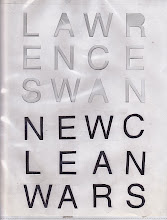God
God
God, will You give me credit for using the name “God” in public?
— if I use Your name to give credibility to whatever I might say, as if You are authorizing what I claim?
— if I back it up further by attaching some words taken out of context from Hebrew or Christian scripture, will You give me credit?
What do you mean by “credit?”
By credit I mean belief, trust . I mean, maybe I could manipulate the mind of whoever hears me to believe I am telling the Truth because I believe I am speaking to God, or even For God, or even stating a prophecy?
— and if “God” is only a word I say for rhetorical effect, spoken in vain, you might say, but effectively short-circuiting the critical faculty of the listener who fears I might actually speak for God?
— and if I string together phonemes in utterances that sound like a foreign and ancient language, and it sounds like glossalalia will it scare you and convince you that a mere opinion shaped by prejudice and ideology and ignorance is really expressing divine will and that if you don’t believe me you risk being punished forever because you are afraid of an inscrutably angry creator whose will is different from yours and whose alien intentions cannot be understood by your finite human intellect?
— if I use the word “God” to persuade the gullible that I must be telling the truth because no one would dare pray a lie, would you believe me?
I try chanting
Kyrie Eleison
Kyrie Eleison
Kyrie Eleison
My chant is drowned out by the cries of aircraft cutting through the membrane of the sky.
Dear God, we pray, I guess, this is an emergency,
have mercy.
Immigrants are dragged away from their homes and work places by lawless masked men.
The wealth of the nation is taken from the poor to benefit the wealthy.
Lazarus dies in his own excrement alone on a subway. The slaughter of the innocents in Gaza is cheered on by God’s people, and also Christians.
Kylie Eleison
Lord have mercy
Help me
Help us
Help them
Help Israel listen to their Prophets’ call for justice and abandon their weapons and idols of war.
Help Palestine listen to their Prophet call for justice and abandon their weapons and their idols of war.
Help Christians lose Christianity so they can find the Galilean prophet, their rabbi Jesus.
Jesus said that if they don’t understand the prophets they won’t even believe a man who came back from the dead
— and the prophets said very little besides calling for justice and mercy for the poor and the stranger and the bereaved
A couple of days after the Palm Sunday protest march, Jesus led the protestors to occupy the temple and stop business as usual He publicly accused the religious establishment of exploiting the poor.
Jesus told a story about a beggar who went to Heaven and a rich man who went to Hell
Jesus said blessed are the poor, blessed are the peacemakers.
I read Jesus’ gospel as a prophetic call for nonviolent revolution and evolution of consciousness.
But it becomes mind-numbing propaganda when appropriated by the ruling class, the nationalists, the con men, and the paranoid.
Help us Jesus to pity the Christians who want to be millionaires.
Help us to forgive those who follow men who want to be kings.
Help us to show nationalists how to love our neighbors.
Help us push the rich man’s Tesla through the needle’s eye.
This is an emergency, an emergence.
I am being emptied out, thank God.
There is a lot of ego confusion to go, and a lot of false consciousness to be burned away by reality, but I name Reality “God” and praise Reality.
Kyrie Eleison
Lord have mercy




